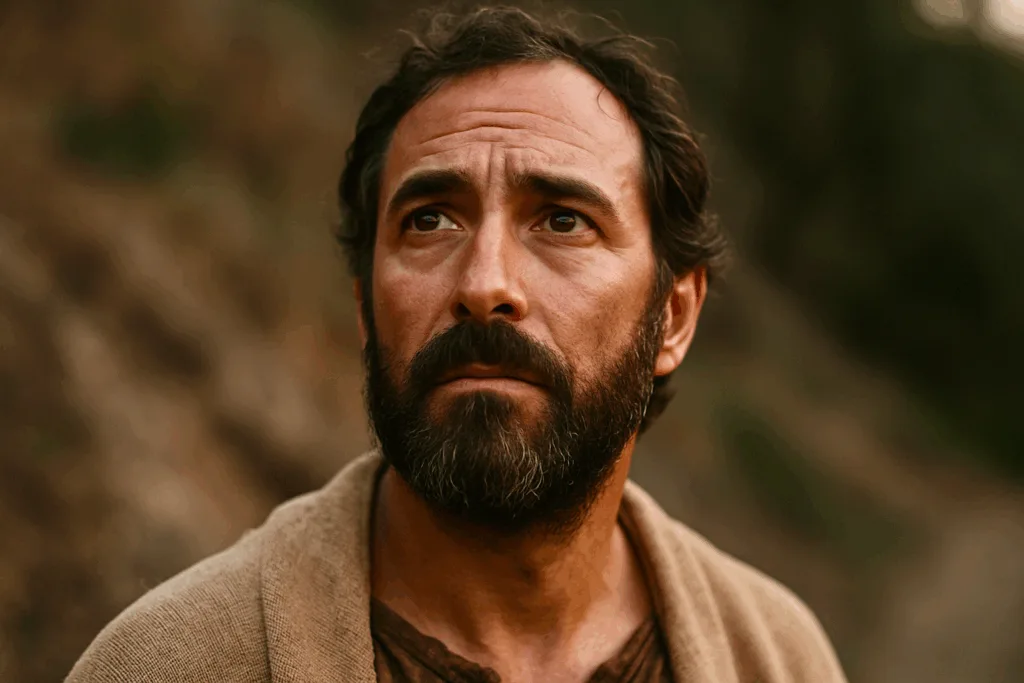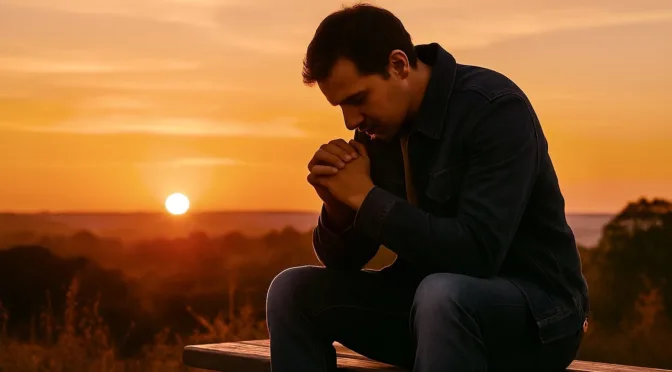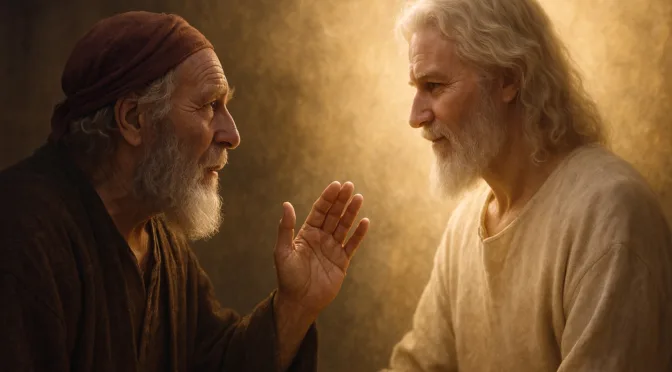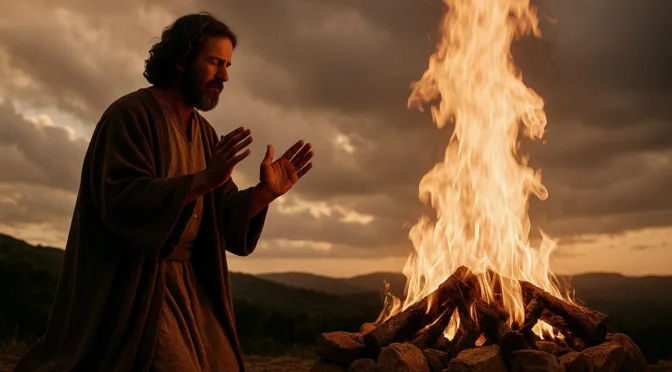A Call to Live by the Spirit
Oh, for that flame of living fire! The ancient hymn sighs with longing, its words almost lost to a generation numb to holy passion. Where is that Spirit, Lord, which once set the hearts of saints ablaze, which filled prophets with boldness and caused apostles to endure shipwreck, hunger, and sword with unwavering joy?
We must ask ourselves, Where is the fire? And we must answer honestly. The fire of the Spirit has not vanished; it has simply been replaced — replaced by comfort, self-interest, and a cross-less Christianity. The Apostle Paul gave the key when he declared: “But far be it from me to boast, except in the cross of our Lord Jesus Christ, through which the world has been crucified to me, and I to the world.” (Galatians 6:14, NASB)
If we desire to live by the Spirit as those saints did, we must return to the cross. There is no shortcut. There is no modern substitute.
Living by the Spirit Begins at the Cross
To live by the Spirit is to first die at the cross. Jesus said plainly, “If anyone wants to come after Me, he must deny himself, take up his cross daily, and follow Me.” (Luke 9:23, NASB) To live under the Spirit’s rule moment by moment, we must let the cross do its work, severing our attachment to the world and emptying us of self.
Many today want the fire without the altar. But Scripture is clear: “Present your bodies as a living and holy sacrifice, acceptable to God, which is your spiritual service of worship.”(Romans 12:1, NASB) Without sacrifice, there is no fire.
Living by the Spirit today looks like surrender — absolute, unrelenting, joyful surrender. It is not a Sunday activity but a daily death. It is the laying down of plans, the renouncing of pride, the crucifying of comfort.
What Living by the Spirit Looks Like Today
To live by the Spirit in today’s world is to walk in conscious, continual submission to God’s voice. It is a life that bears the fruit of the Spirit: “love, joy, peace, patience, kindness, goodness, faithfulness, gentleness, self-control.” (Galatians 5:22-23, NASB)
It looks like believers who are bold in their witness, unashamed of the gospel, as Paul was when he wrote, “For I am not ashamed of the gospel, for it is the power of God for salvation to everyone who believes.” (Romans 1:16, NASB)
It looks like saints who are not driven by fear or anxiety, but who trust wholly in God’s providence: “Be anxious for nothing, but in everything by prayer and pleading with thanksgiving let your requests be made known to God.” (Philippians 4:6, NASB)
It looks like households where prayer is not an afterthought, but the breath of the home. It looks like workplaces where integrity shines, conversations where grace abounds, and lives so surrendered that the fragrance of Christ follows everywhere they go.
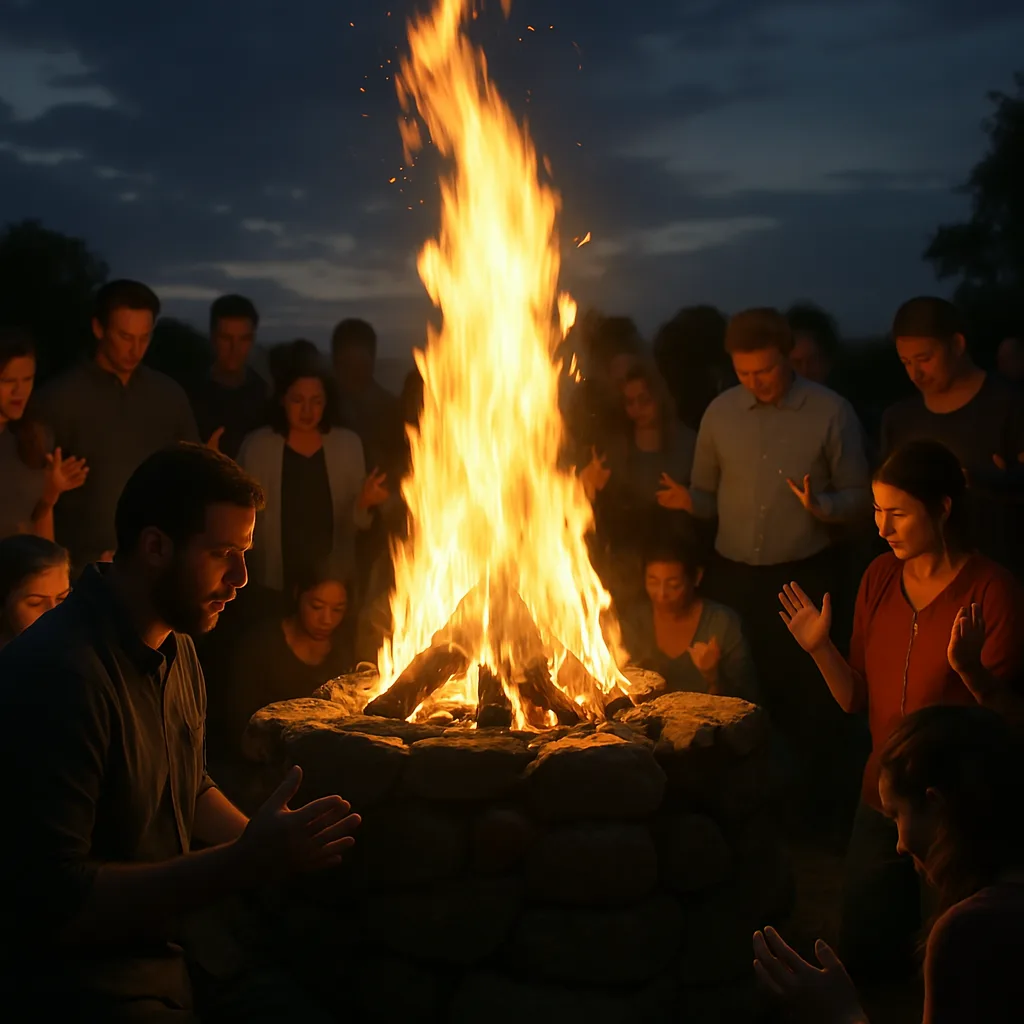
Why Has the Fire Diminished?
Why must we ask, “Where is that Spirit, Lord?” It is because we have settled for a form of godliness without its power (2 Timothy 3:5). We have exchanged the Spirit’s fire for the world’s approval. We have chosen safety over surrender.
The saints of old walked in the power of the Spirit because they first walked the narrow way of the cross. They were crucified to the world, dead to its charms, and alive only to God.
If we would regain the fire, we must return to that narrow path. Jesus warned, “Enter through the narrow gate; for the gate is wide and the way is broad that leads to destruction, and there are many who enter through it.” (Matthew 7:13, NASB)
A Call to Rekindle the Flame
Where is the fire? It waits for those willing to lay all on the altar. It waits for those who will take up the cross daily, die to self, and live by the Spirit.
Today, the call is urgent. Lay down your life anew. Present yourself as a living sacrifice. Crucify the flesh with its passions and desires (Galatians 5:24). Boast only in the cross of Christ, and watch as the fire returns — not as a flickering candle, but as a consuming blaze.
We need not sigh with nostalgia for a bygone era. The Spirit has not changed. “Jesus Christ is the same yesterday and today, and forever.” (Hebrews 13:8, NASB) His fire still falls — but only where there is fuel. Only where there is surrender.
Let us forsake the comforts of this world and seek the face of El Shaddai. Let us live by the Spirit, moment by moment, breath by breath, until our lives burn as living sacrifices, holy and acceptable to God.
Then, and only then, will the world look at the Church and see not a hollow religion, but a living fire.
Closing Prayer
Lord Yeshua, we kneel at the foot of Your cross. Crucify our pride, our comfort, our idols. Set our hearts ablaze with the fire of Your Spirit. Let us live by the Spirit, walking in the steps You have marked out for us. May our lives be living flames, drawing all men to You. Amen.
⸻









